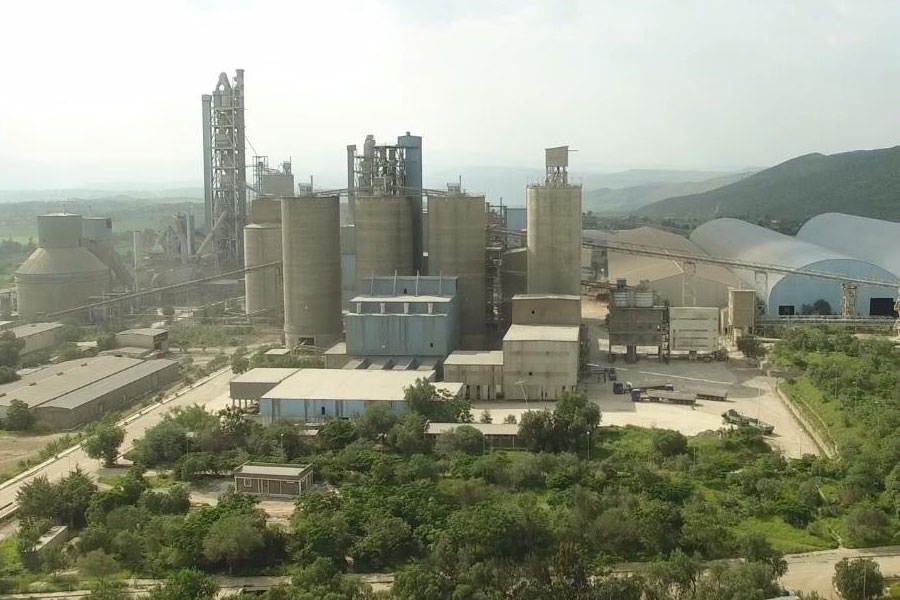
Fortune News | Jul 10,2020
Eco Green Organic Liquid Fertiliser Producing PLC began production of organic liquid fertiliser on October 20, 2018 in Arsi, Oromia Regional State, in a ceremony organised by Eco Green, the Oromia Bureau of Agriculture and GIZ’s Green Innovation Centre program.
The company, founded in 2007 by Kebede Lakew as a research centre, sells organic liquid fertiliser in two-litre to 200-litre containers. The company has been providing training to farmers on how to use the fertiliser made from plant and animal wast products converted to liquid forms.
“It took us more than eight years to research and develop the product,” Kebede, winner of the 2015 UNDP Entrepreneur of the Year Award, said.
Eco Green collects and buys organic waste from nearby farmers and transforms them into liquid fertiliser through a fermentation process.
While organic fertilisers are generally preferred over chemical fertilisers for environmental concerns, liquid fertilisers add additional advantages, according to Kebede.
“It helps in controlling growth, has less effect on soil health and is easily absorbed by plants,” he said.
Initially, the company started by producing small quantities for free trial samples to smallholder farmers in Amhara and Oromia regional states. Now the company is growing its customer base and has vegetable, flower and fruit commercial farms as its clients.
Last year, Eco Green, a firm established with an initial capital of 13 million Br, produced about 300,000L of the product, most of which were produced as samples given away as promotional items for free. With a potential to produce 1.9 million litres annually, the company plans to produce a million litres this year.
Eco Green’s main plant is located in the Amhara Regional State, in the North Shoa Zone, about 60Km from Addis Abeba. Lying on a nine-hectare plot, the company's factory has 35 full-time and 50 part-time employees.
“Since public awareness of organic liquid fertilisers is still undeveloped, we are facing challenges selling the product,” Kebede said. “We are looking for partners to expand.”
One partner is Gonder Agricultural Research Centre, which is currently studying the product. Another is GIZ Ethiopia, which is working with Eco Green to offer small-holder farmers inputs such as environmentally-friendly liquid fertilisers under its Green Innovation Centre program.
The program, launched for a total of 560 million Br plans to reach 70,000 small-holder farmers.
Solomon Andualem (PhD), a lecturer at Bahir Dar University’s College of Agriculture & Environmental Sciences, hails the initiative. He points out that it will have benefits in avoiding the side effects of chemical fertilisers currently in use in Ethiopia.
“Urea and Dap contain high levels of heavy metals such as lead that cause severe health issues,” he said. “It will also have the potential to save the country foreign currency it spends to import fertilisers.”
The nation imports seven types of fertilisers, with 1.2 million tonnes having been imported in the 2016/17 fiscal year. Almost half a billion dollars were spent on fertiliser imports in 2016.
PUBLISHED ON
[ VOL
19 , NO
968]

Fortune News | Jul 10,2020

Radar | May 31,2020

Radar | Apr 17,2020

Radar | Oct 12,2024

Radar | Oct 16,2021

Radar | Jul 27,2025

Fortune News | Mar 27,2021

Fortune News | Jan 18,2020

Radar | Jul 23,2022

Covid-19 | Jul 06,2021

Dec 22 , 2024 . By TIZITA SHEWAFERAW
Charged with transforming colossal state-owned enterprises into modern and competitiv...

Aug 18 , 2024 . By AKSAH ITALO
Although predictable Yonas Zerihun's job in the ride-hailing service is not immune to...

Jul 28 , 2024 . By TIZITA SHEWAFERAW
Unhabitual, perhaps too many, Samuel Gebreyohannes, 38, used to occasionally enjoy a couple of beers at breakfast. However, he recently swit...

Jul 13 , 2024 . By AKSAH ITALO
Investors who rely on tractors, trucks, and field vehicles for commuting, transporting commodities, and f...

Nov 1 , 2025
The National Bank of Ethiopia (NBE) issued a statement two weeks ago that appeared to...

Oct 25 , 2025
The regulatory machinery is on overdrive. In only two years, no fewer than 35 new pro...

Oct 18 , 2025
The political establishment, notably the ruling party and its top brass, has become p...

Oct 11 , 2025
Ladislas Farago, a roving Associated Press (AP) correspondent, arrived in Ethiopia in...